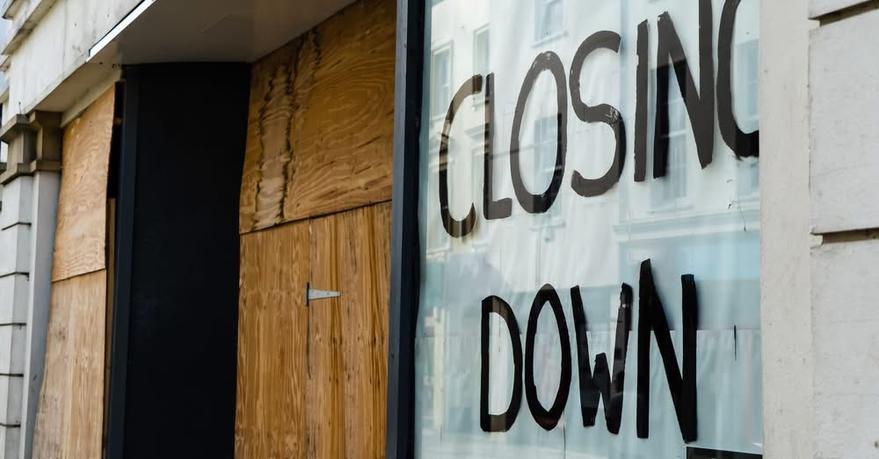
Pride in Place or Politics as Usual? Why Labour’s High Street Plan is More Optics Than Policy
Sir Keir Starmer’s new “Pride in Place” programme has been sold as transformative: communities taking back control of boarded-up shops, saving pubs, blocking vape stores, and reviving high streets. It sounds bold. But scratch beneath the surface, and the reality looks like policy theatre a political shield against Reform UK, not a serious regeneration plan.
A Defensive Move Against Reform UK
The timing is no accident. Labour strategists know Reform UK’s rise is being fuelled by communities who feel forgotten. So this programme is less about fixing long-term decline and more about neutralising Farage’s narrative. It’s politics, not policy.
The Money Doesn’t Stack
Let’s do the maths. Blair’s New Deal for Communities in the 2000s gave about £50m to each area. Starmer’s offer? £20m over ten years £2m a year. That doesn’t even cover one decent leisure centre refurbishment. In real terms, after inflation, it’s a fraction of what Blair spent.
You can’t rebuild hollowed-out towns on pocket-money regeneration.
The Mirage of “New Powers”
Seizing derelict pubs? Councils already have compulsory purchase powers. They don’t use them because they’re expensive, legally complex, and can be blocked for years by developers.#
Blocking vape shops and gambling outlets? That runs straight into planning law and corporate lobbying. Councils can’t just pick winners and losers on the high street without rewriting planning frameworks. And let’s be honest Westminster isn’t about to take on the bookies.
“Fake barbers”? A soundbite, nothing more. There’s no licensing system to police barbering in the UK. Councils can’t close shops just because they suspect money laundering or tax dodging.
The Barber Shop Problem: A Case Study
Walk down almost any high street and count the barbers. They’re everywhere. And that fact alone tells you the truth: councils don’t control the high street the market does.
Why so many barbers? Because landlords and councils simply need someone to pay rent and business rates. They’re not bothered if the fifth barbershop opens next to the fourth, as long as the bills get paid. Oversaturation doesn’t matter to them their budgets are so thin they’ll take revenue wherever it comes from.
That’s why we have “high streets of barbers and vape shops” in the first place. Not because councils want them, but because councils have no power to stop them.
Bureaucracy Without Backbone
The plan talks about “neighbourhood boards” working alongside councils. In practice, that’s just more bureaucracy layered onto local government that’s already on its knees. Councils can’t even deliver basic services after years of cuts. How are they supposed to run new boards, seize assets, and regenerate high streets with no staff and no money?
Ignoring the Real Drivers
Even if you gave councils these powers, £20m won’t fix the real causes of high street decline:
• The shift to online retail.
• Out-of-town shopping.
• Falling disposable incomes.
• Sky-high business rates.
• Corporate landlords leaving units empty.
Unless you tackle those, painting over shopfronts and promising “pride in place” is little more than PR.
Blair-Lite Without the Substance
Labour are trying to evoke the memory of Blair’s regeneration era, but the comparison is weak. Blair’s scheme was big, long-term, and cross-departmental. Starmer’s is smaller, cheaper, and politically defensive. It’s Blair-lite, without the Treasury muscle or the booming economy of the 2000s.
Optics, Not Renewal
In truth, this isn’t a revolution for high streets. It’s a clever rebrand designed to slow Reform UK’s advance. The money is too small, the powers too flimsy, and the legal hurdles too high.
Communities deserve real investment, real local power, and a plan that takes on the structural causes of decline. What they’re being offered instead is a soundbite: “fake barbers” and token funds that won’t stretch beyond a few cosmetic projects.
And here’s the uncomfortable truth: councils don’t have the tools to change any of this. Their only real revenue sources are council tax (which they can only raise with Westminster’s permission), business rates (set nationally, not locally), and a handful of scraps like parking enforcement, fines, and licensing fees. That’s it. They have no independent tax base, no serious levers, and no fiscal freedom. They are left chasing whoever will open a shop and pay the bills whether that be barbers, vape stores, betting shops, anyone. Until that changes, no amount of “pride in place” slogans will bring real renewal.
Credit Luke James Dolan
